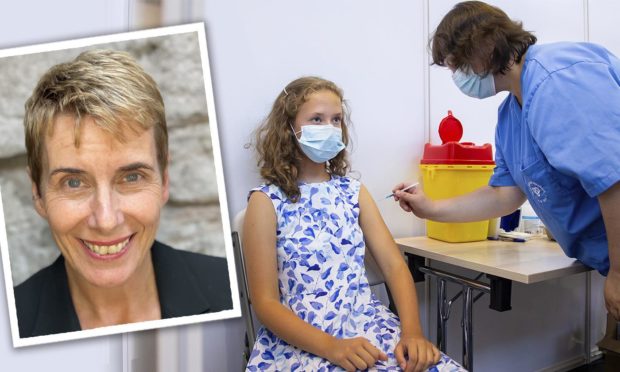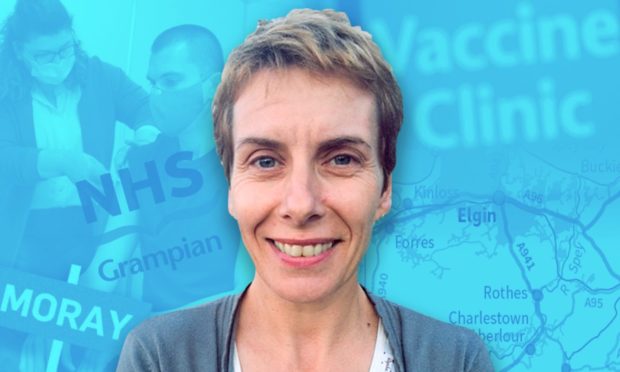All young people 16 to 17 years of age will now be offered a Covid vaccine in Scotland.
And NHS Grampian’s Jillian Evans says “it will be a matter of when – not will we” in terms of children aged 12-and-over without health risks being offered the vaccine.
Currently, only children who are deemed vulnerable in the age group are being offered the jab, as approved by the Scottish Government.
The news comes following the latest advice from the Joint Committee on Vaccination and Immunisation (JCVI), who have approved the use of the Pfizer vaccine in young people.
During an interview with BBC Scotland’s John Beattie, NHS Grampian head of health and intelligence Jillian Evans said she was “really pleased” regarding the news and said it not only benefited individual health but also population immunity.
She said the move will help to manage disruption lives and livelihoods, as well as variant evolution.
When asked when 12 to 18-year-old’s will actually start being vaccinated, Ms Evans said: “The good news is for the majority of people that age, they are still in education so if we are thinking about deployment of the vaccine then we have people in schools who could be vaccinated subject to them consenting.
“This week we are beginning the deployment of the vaccine to vulnerable children between 12 and 17 so we are busy with that.
“But of course we will begin to plan now for the younger age groups and beyond – so it is great news.”
Speaking of children aged 12-and-over without health risks, Ms Evans noted that as more evidence comes to light, “it will be a matter of when, not will we”.
The health official was then quizzed on whether the government needed to offer an incentive to 18 to 40-year-olds, as data shows one quarter of the age group are still to be vaccinated.
In response, Ms Evans said: “I don’t think we are accepting that at all, to be perfectly honest it is becoming the normal thing to do.
“Although the take up has been slower and I accept that and its taking us longer to be able to reach people for whatever reason, whether they are hesitant or whether they are resistant or whether they just find it inconvenient.
‘They want to get on with their life’
“We are looking at lots of reasons to why people aren’t coming forward in those younger age groups.
“As we look at what we can and can’t do in our lives, I don’t think it unreasonable to start to see these numbers go up.
“They want to get on with their life, either as a direct consequence of something they want to do – travel for example – or whether they want to see a more sustained way of life without us stopping and starting as we have done for the last 18 months.
“I think our efforts need to be on making the vaccine as accessible as possible.
“We know that there will be people who remain resistant but our job is to reach those who are hesitant and try to address their concerns so I am hopeful that we will see an increase over time in those younger age groups.”

